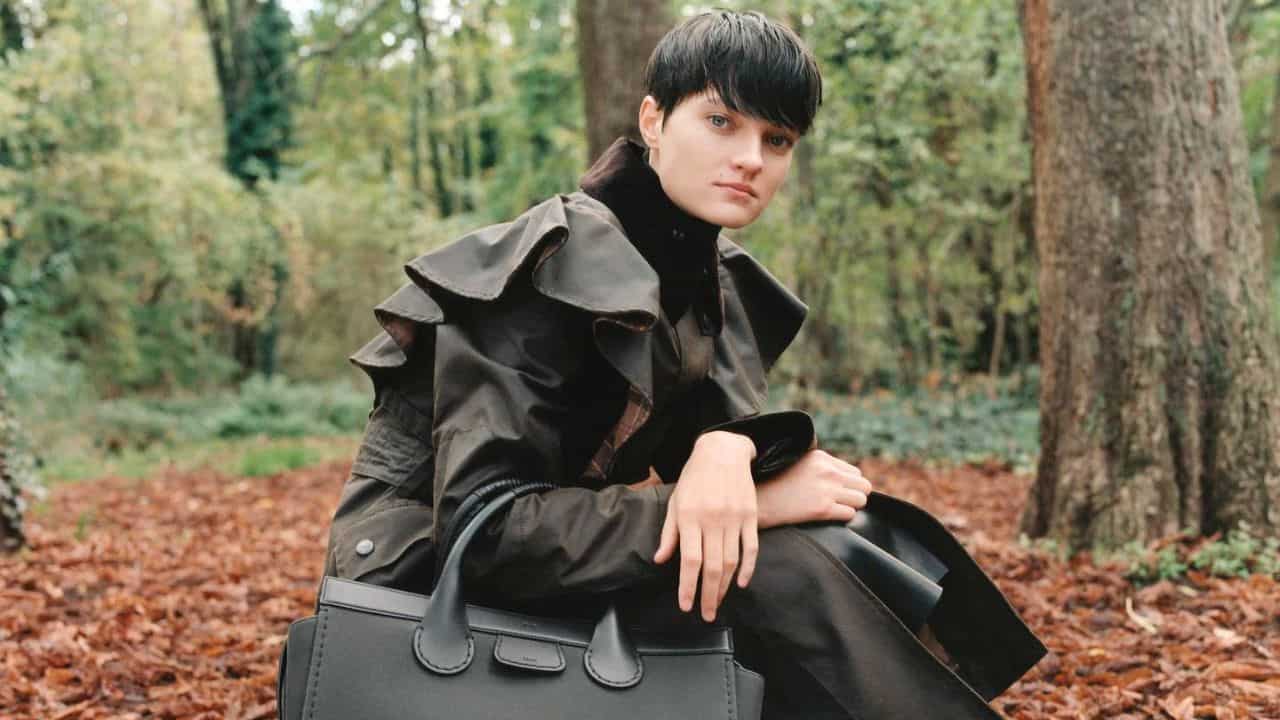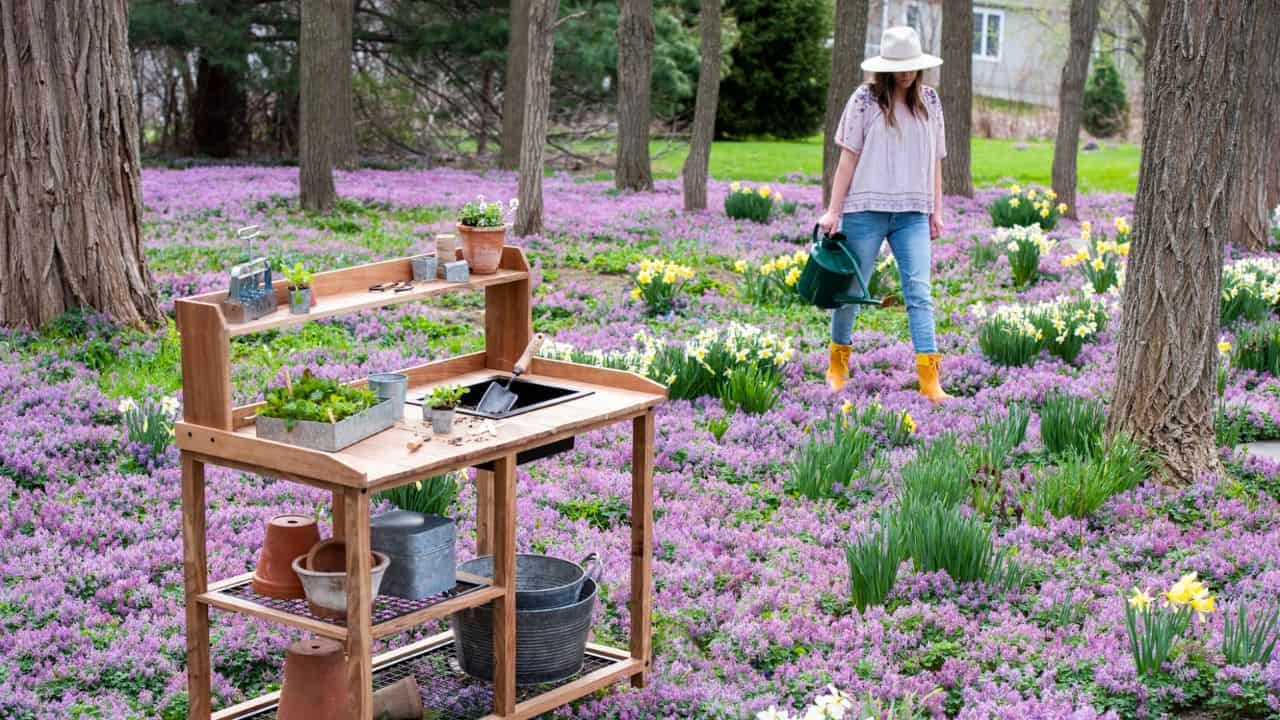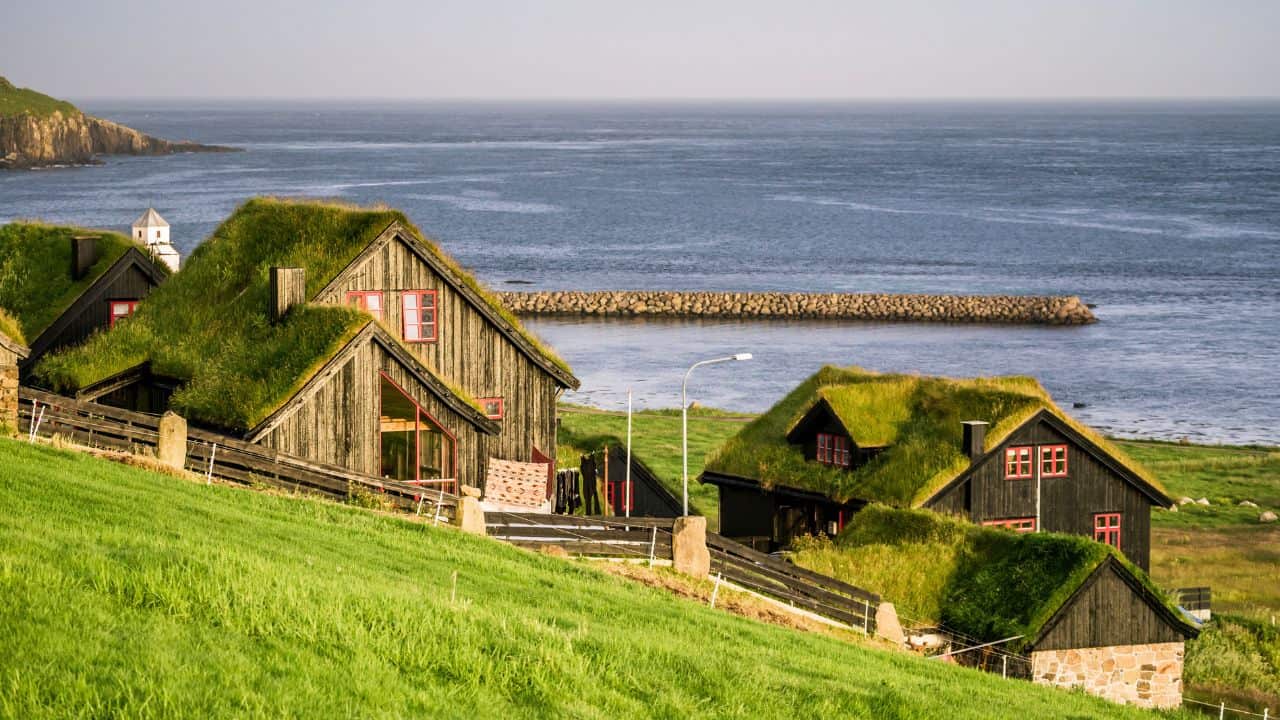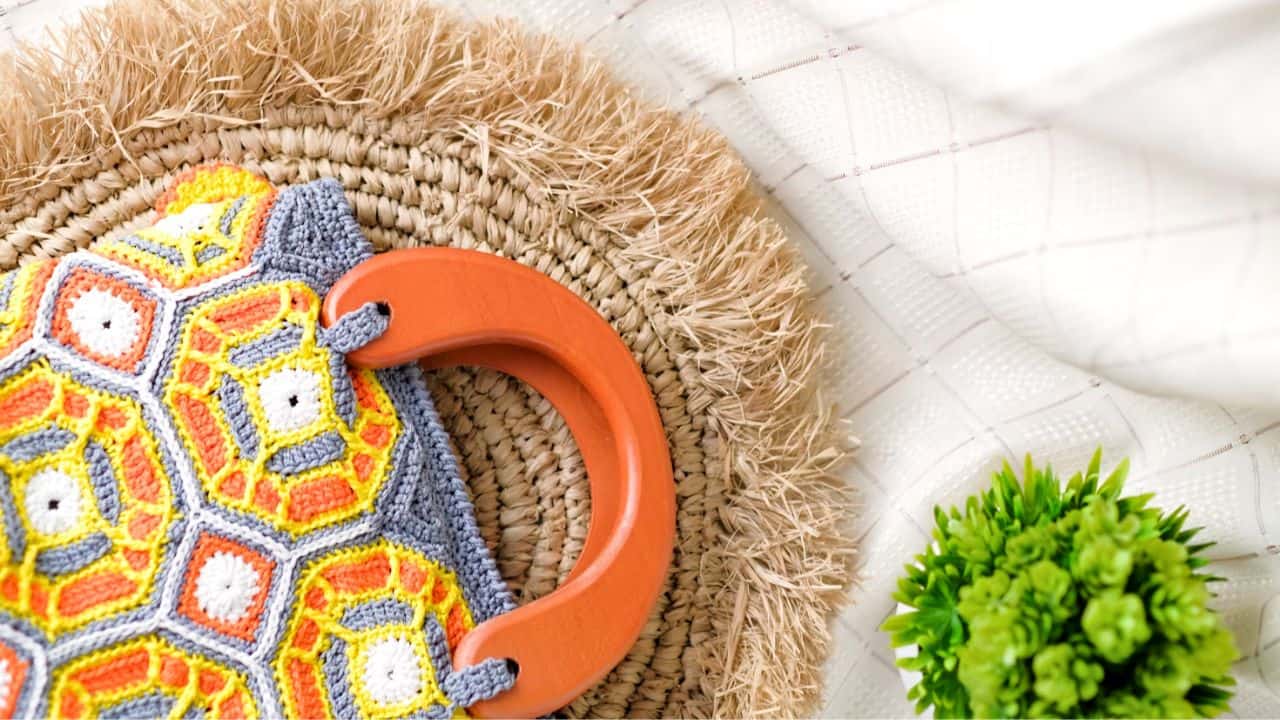One thing the UK can pride itself on is the number of beautiful reserves and conservations it has dotted across the nation.
UK nature reserves are vast lands of wildlife that are protected to help biodiversity flourish.
There are often special species and geographical elements in reserves that are being conserved because they are at risk.
But nature reserves are also maintained to be seen by the population, so we can learn about different species and see the beauty that is being conserved.
That’s why the experts at pebble have come up with the best UK nature reserves near you for a day trip.
Why are UK’s nature reserves important?
A study by London’s Natural History Museum scientists revealed in autumn last year that the UK is one of the worst nations for maintaining ecosystems.
In fact, the study revealed that nearly half of Britain’s biodiversity has disappeared over the last few centuries.
This is why nature reserves are key to maintaining the biodiversity levels we have.
We rely on biodiversity and natural ecosystems for air, food, and even as a solution to climate change, as deforestation releases greenhouse gases into the atmosphere.
This reduction of biodiversity presents a risk to the future of the planet and human health.
So, nature reserves aren’t only pretty to visit, they’re also working hard for the environment.
And if you’re feeling up for an adventure, find an event near you hosted by Festival of National Nature Reserves this summer. They offer a wide variety of events, focusing on bird watching, forest bathing, and even fossil hunting!
The UK’s Best Nature Reserves
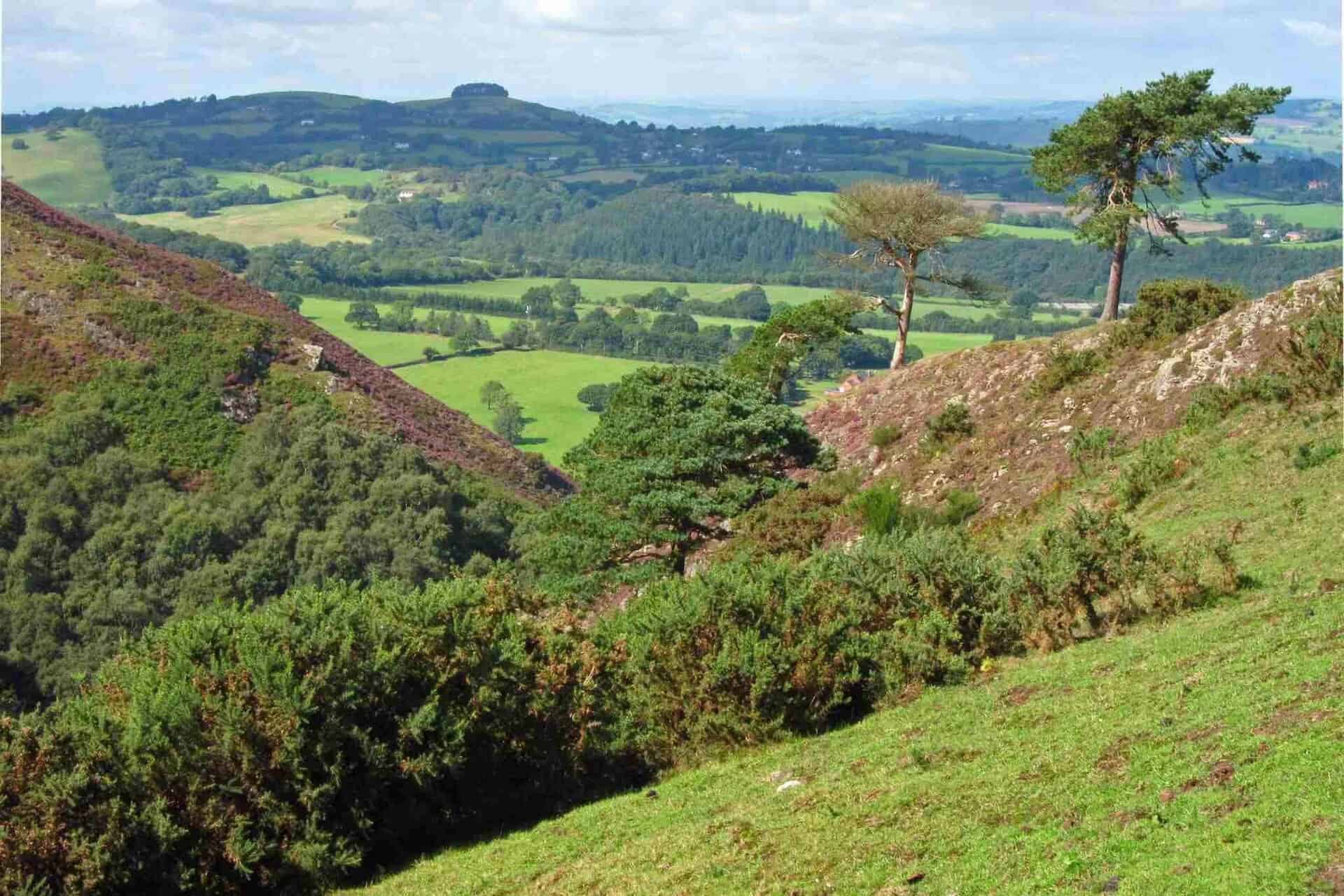
1. Strumpshaw Fen, Norwich
Located on the River Yare, Strumpshaw Fen is the perfect place to see Broadland wildlife.
Summer is the best time to visit if you want to catch sight of birds such as bitterns, and kingfishers, and a fen meadow full of wildflowers with butterflies and dragonflies gliding through.
The reserve has guided walks throughout the year, three hides for viewing points, and 5km of trails split into different routes to see the pools, meadow, or woodlands.
All three trails have an abundance of birds, flora, and other species.
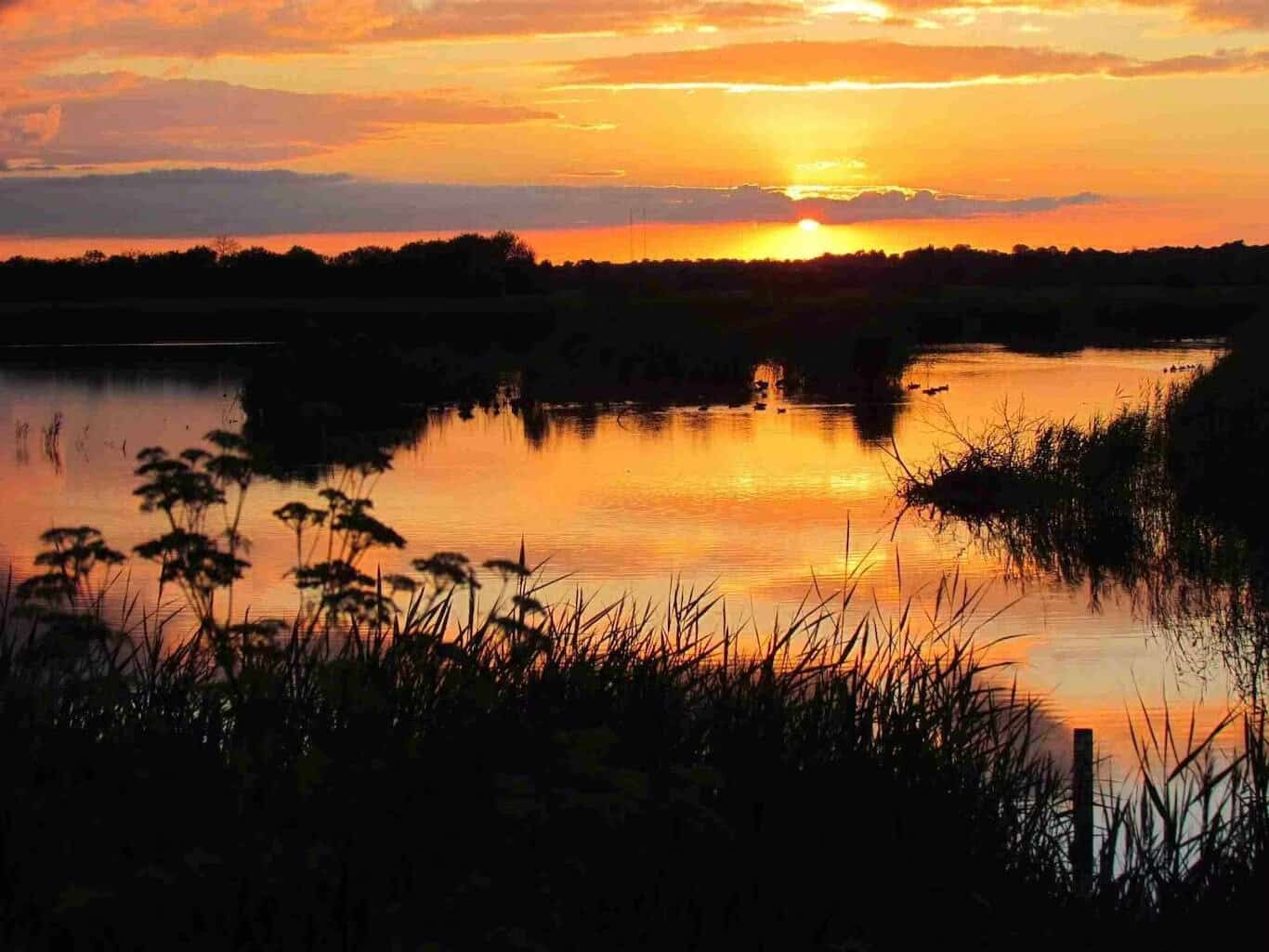
2. Salthill Quarry, Clitheroe
This reserve used to be at the bottom of the ocean. Spot the fossilised remains of crinoids, or sea lilies, to see the history of the land.
Full of wildflowers and blooming meadows, Salthill Quarry attracts a range of insects in the summer.
This allows their resident birds, including blue tits, goldfinches, and bullfinches, to flourish.
See a wide range of species on the geology trail, a circular walk that stops by 10 of the best spots on the reserve.
You can even scan QR codes along the way to find out more about the landscape.
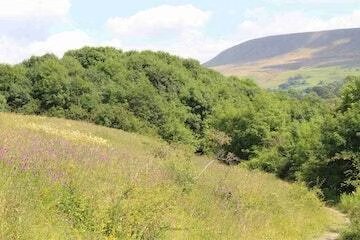
3. Troup Head, Aberdeen
If you’re looking for RSPB nature reserves in Scotland, check out Troup Head.
These Scottish high cliffs are the best place to spot mainland gannets. They are joined by kittiwakes, guillemots, razorbills, and even puffins.
If you look out to sea, you might be lucky enough to spot some minke whales or dolphins.
Troup Head offers a coastal walk, as well as boat trips from local operators to gain an alternative perspective of the landscape.
It is most alive in the summer, where the noise of seabird colonies is accompanied by the view of seals and dolphins.
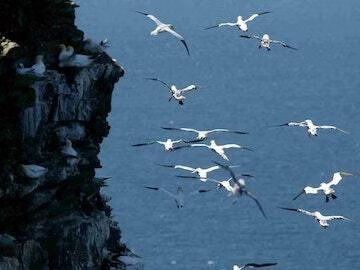
4. Thrupp Lake, Abingdon
One of the many Radley Lakes maintained by Earth Trust.
Many of its fellow lakes have been covered with pulverised fuel ash from Didcot Power Station, but Thrupp Lake still stands in beauty all year round.
During spring herons gather and cygnets hatch, while trees blossom around the lake.
You can watch damselflies and dragonflies dart over the shimmering water in the summer, and even spot an otter if you’re quiet enough.
Come in the colder months to see the lake transform into a magical misty scene.
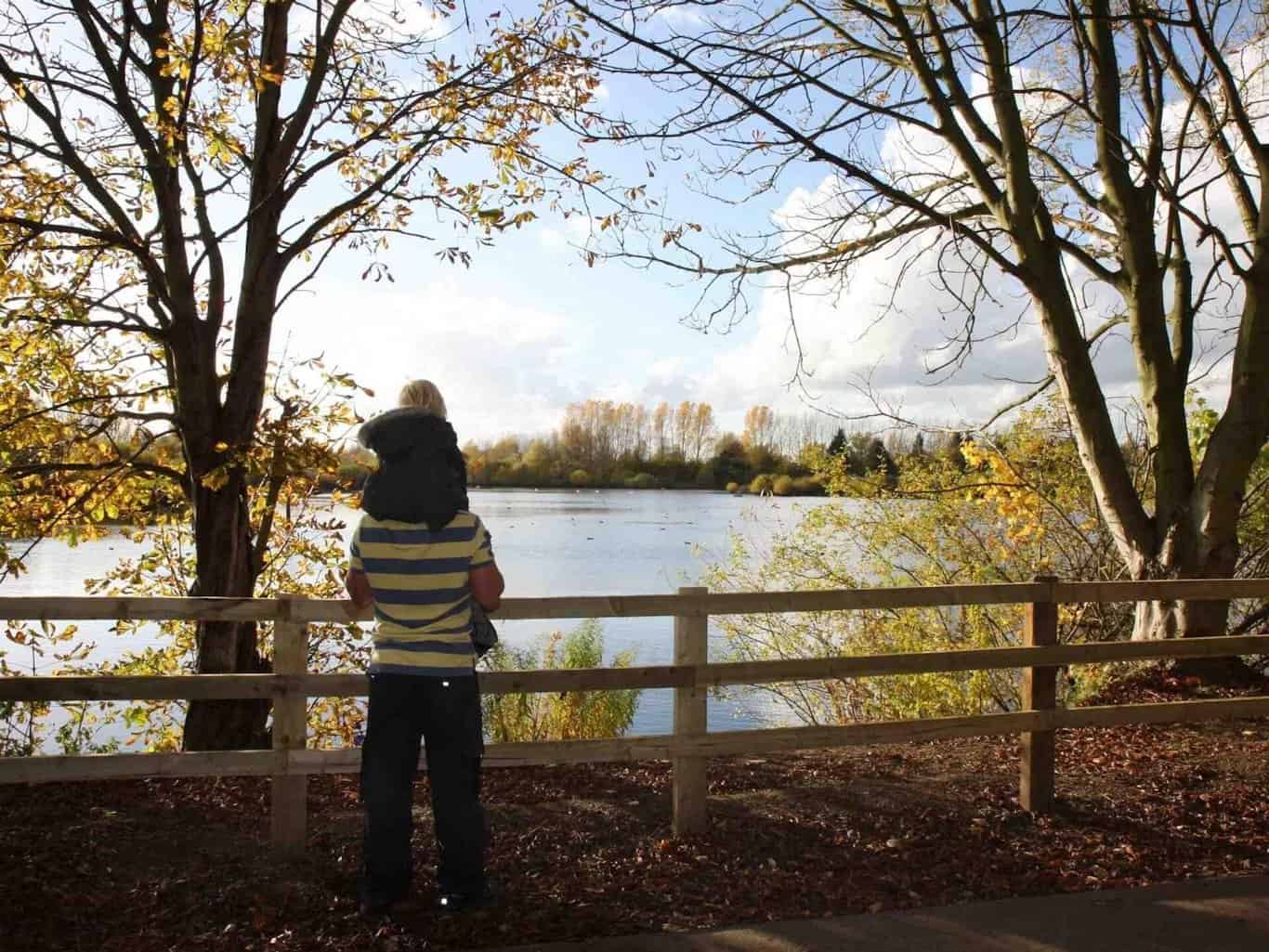
5. Ramsey Island, St. David’s
This island has cliffs as tall as 120 metres, making it ideal for breeding seabirds.
You can spot choughs, guillemot, peregrines, common ravens, and more in this area all year round.
Summer is the ideal time to visit because the island is closed in colder months due to sea conditions.
Enjoy the circular walk of over 5km around the island while taking in the sweet scent of bloomed heather and being joined by buzzing bees and butterflies.
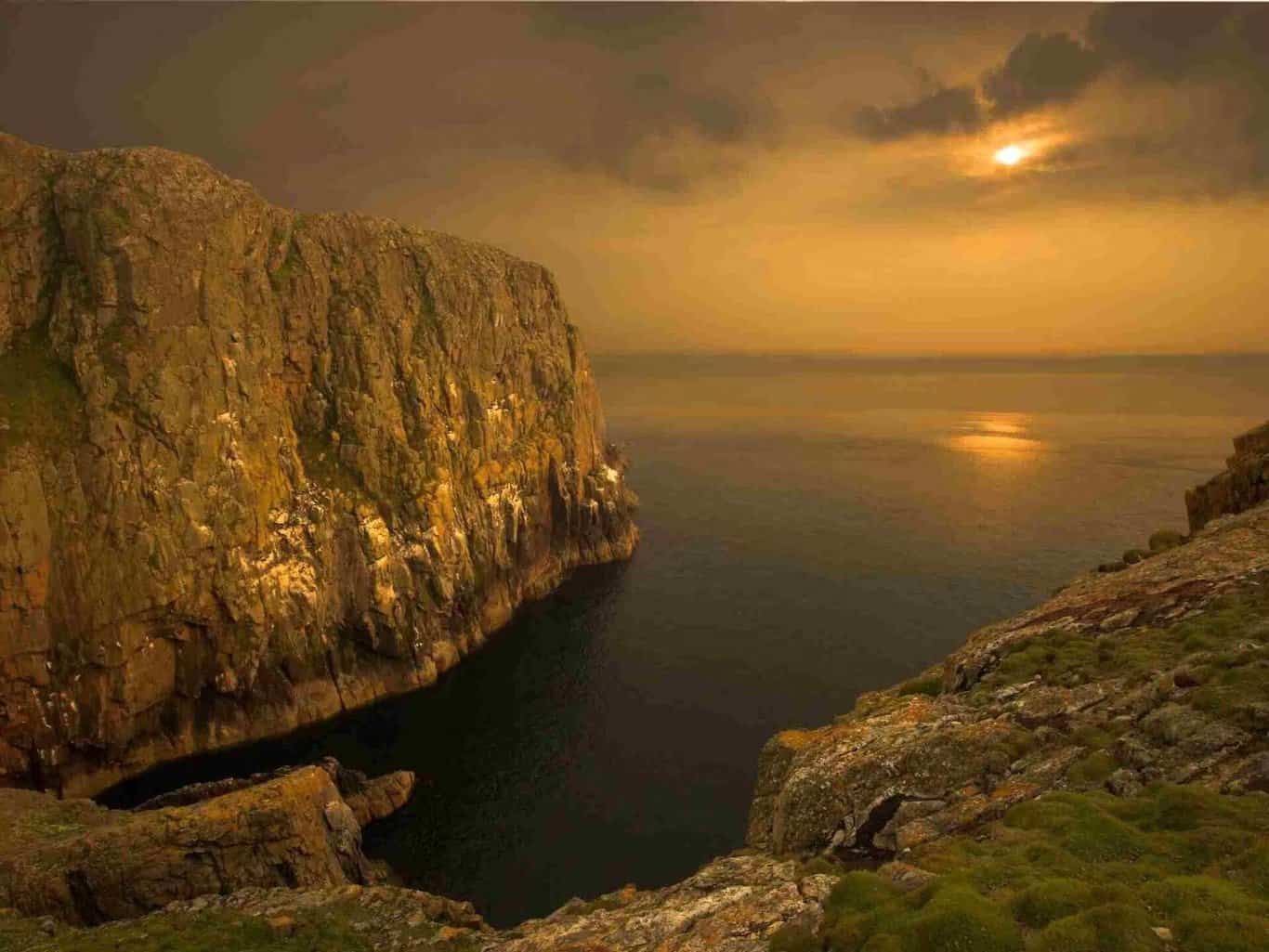
6. Saltholme, Stockton-on-Tees
If you’re looking to get into birdwatching then Saltholme is the location for you.
With a variety of hides and viewing points, you’re sure to catch sight of common terns, lapwings, peregrine falcons, water rails, yellow wagtails, among others at this UK wildlife reserve.
Or take one of 5 nature trails that offer a mix of linear and circular walks with lots of opportunities to spot wild flora and dragonflies, hear the skylarks, and much more.
This reserve is great for any time of the year. Come in summer to see young ducks and great crested grebes on their mothers’ backs, or visit in winter to spot the big flocks of roosting birds.
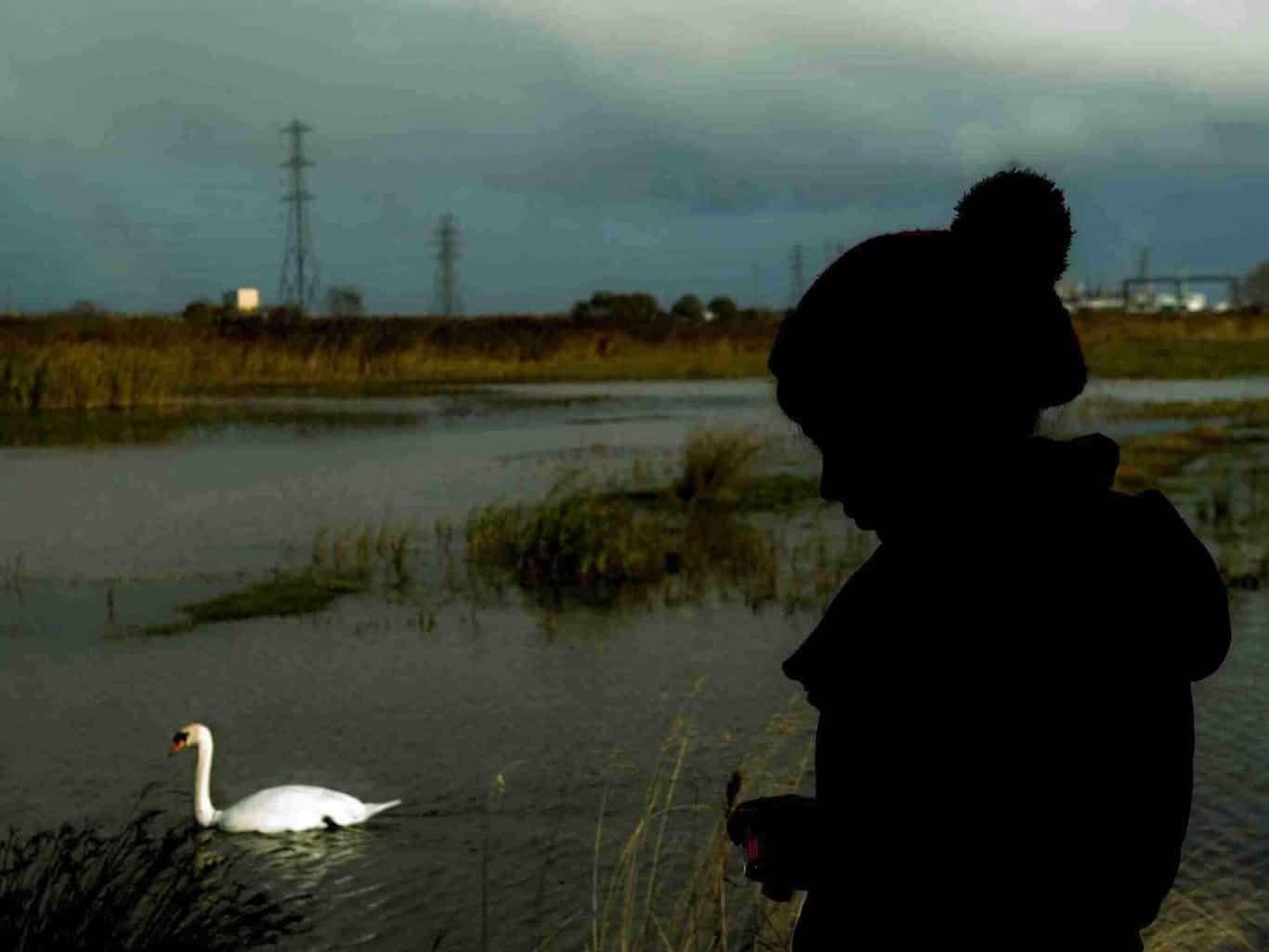
7. Leighton Moss, Silverdale
Home to the largest reedbed in North-West England, Leighton Moss has an array of beautiful wildlife.
You might be lucky enough to spot otters and red deer, among the spectacular birds such as bearded tits, bitterns, and marsh harriers.
While the reserve is buzzing all year round, summer offers shimmering sunlight as the dragonflies and damselflies dart around the deer grazing.
Sign up for a guided walk to make the most out of your visit, head to the wildlife watching hides to spot the different resident species, or take a trail inland or along the coast to get closer to the birds and flora.
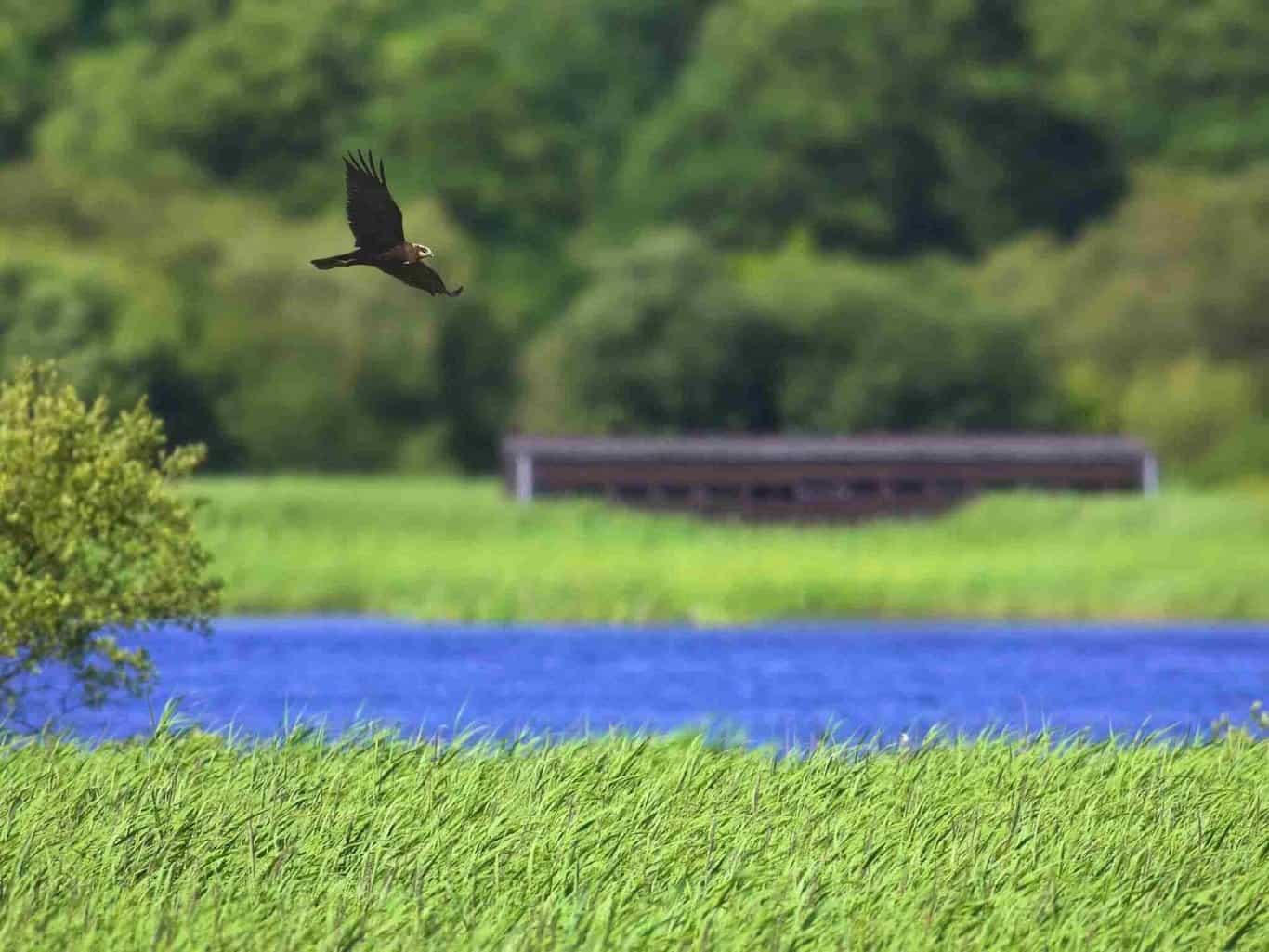
8. Duke’s Wood, Nottingham
Duke’s Wood used to be the location of the UK’s first onshore oilfield. You can even spot some of the old oil pumps around the wood.
Explore the woodland to see oak, hazel, and ash trees, surrounded by flora such as primrose, bluebell, and broadleaved helleborine.
Wildlife you might come across include common frogs, smooth newts, and emperor moths.
The best time to visit is between April and July when the sun is shining and the flora is blooming.
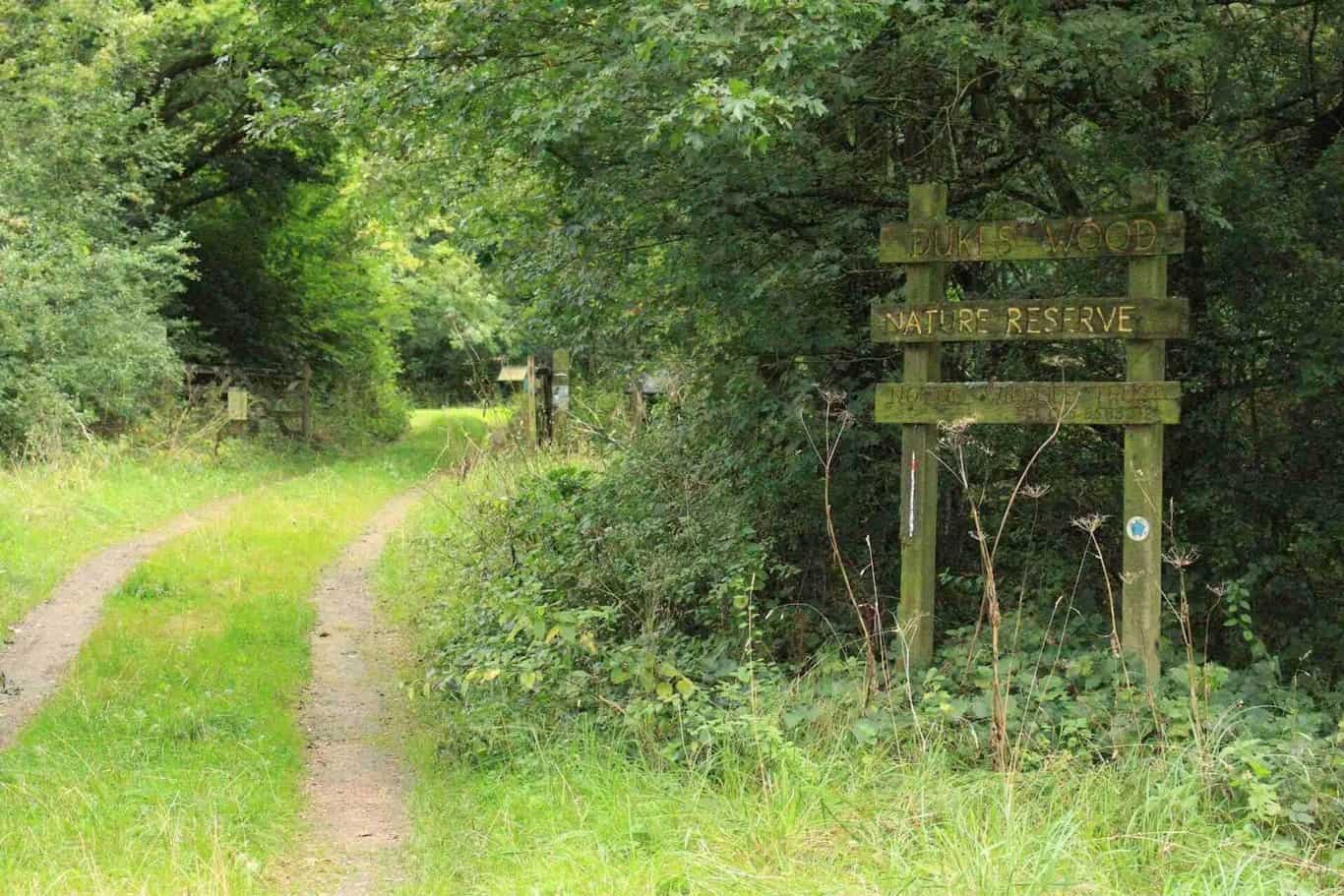
9. Caerlaverock Wetland Centre, Dumfries
Get close to nature by visiting these wetlands. You might come across warblers, hedgerows, dragonflies, butterflies, and even swans and barnacle geese.
Spring is the ideal time to visit Caerlaverock because the reserve is filled with noise from natterjack toads, while many birds begin to nest, and the wildflowers start to bloom.
Head to the Sir Peter Scott Observatory to look out over the Whooper Pond and spot up to 200 whooper swans feeding. This unique experience makes it one of the best nature reserves in the UK.
You can also choose from other hides and towers to catch sight of house martins in the summer, barnacle geese, ducks, and much more.
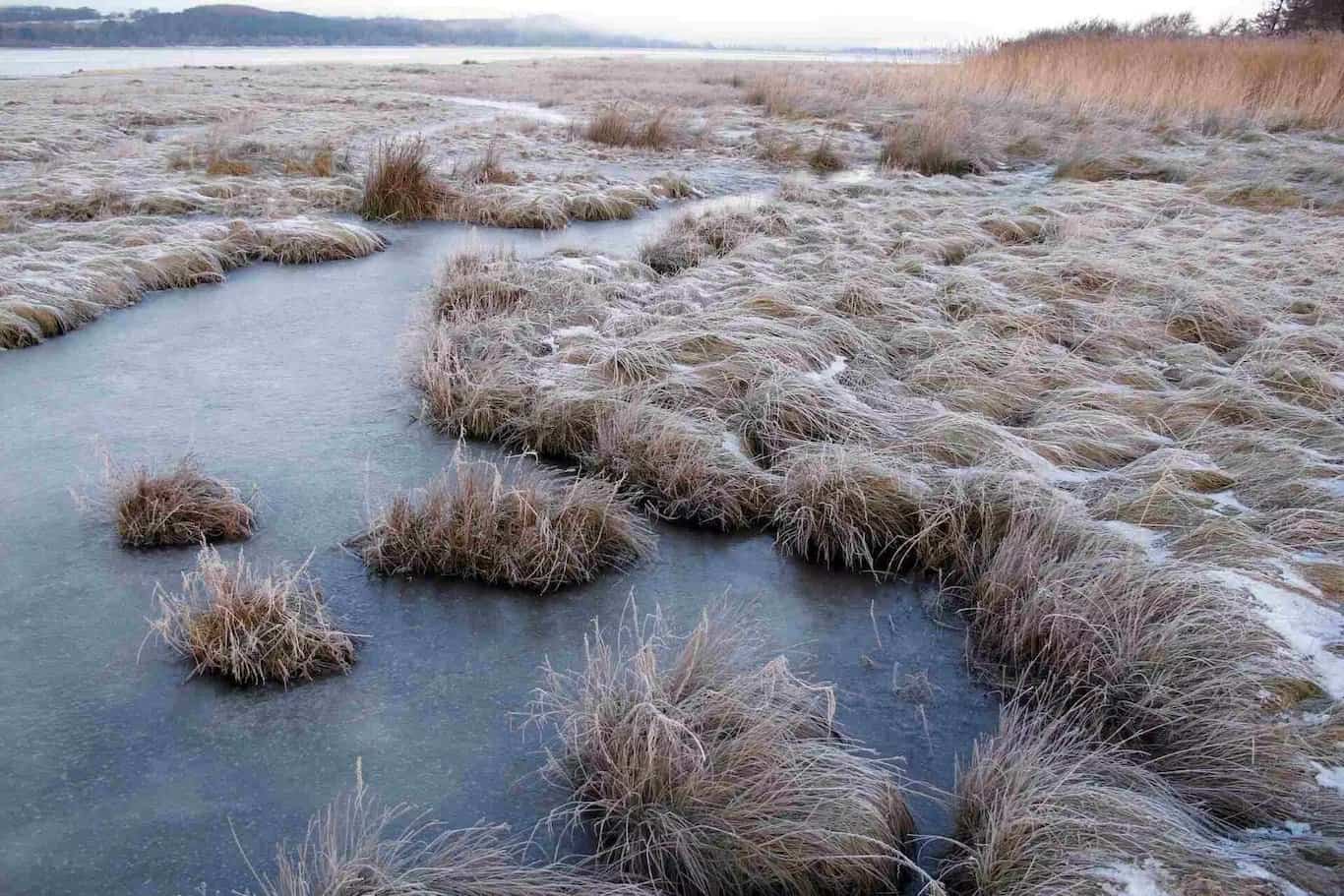
10. Askham Bog, York
An array of fen woodland, and meadow landscapes, this reserve offers colourful displays of different flora.
One of the surviving ancient fenlands of Yorkshire, Askham Bog is the site of an ancient lake that was created by a retreating glacier 15,000 years ago.
The ideal time to visit is between June and September. This is when you’ll see marsh orchid, thistle, and water violet, as well as birds like the spotted flycatcher, hobby, and sedge warbler.
Take the 750m circular walk in the centre of the reserve, which takes you to the pond and back.
- Hone your birdwatching skills, or help conservationists and record your sightings with one of these apps
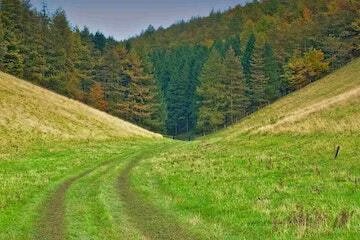
11. Fowlsheugh, Stonehaven
Walk along the cliffs at Fowlsheugh in the warmer months and you’ll find more than 130,000 breeding seabirds.
From guillemots, razorbills, kittiwakes, and even puffins, there is a wide range of resident birds on site.
If you’re visiting in the winter months, you may spot some new seal pups on the beach.
Guided walks are available in peak breeding season and there are nature trails to choose from to ensure you get to see what Fowlsheugh has to offer.
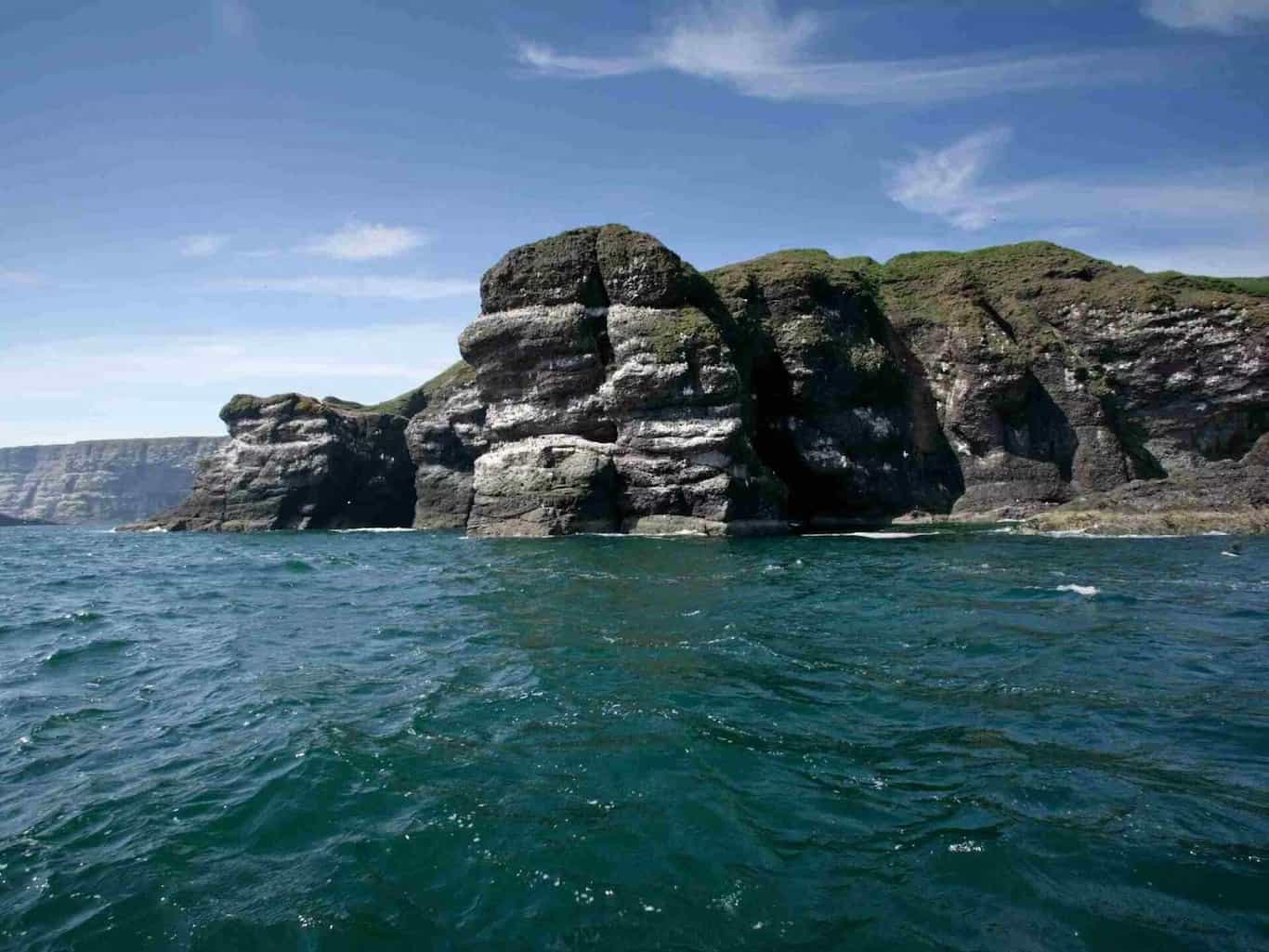
12. Coombes Valley, Leek
Coombes Valley is a family-friendly woodland reserve that is vibrant in spring and early summer.
During these warmer months, migrating flycatchers, redstarts, and wood warblers come to breed in the woodland.
You might also hear the sound of woodpeckers, while the birdsong of blackbirds and wrens fill the air.
Sunnier days also bring flora like butterfly orchids and adders tongue fern.
If you choose a winter visit, you’ll find redwings, fieldfares, winter finches, and even sparrowhawks.
The longest trail is 5.2km long and goes right into the wilder woodland habitat.
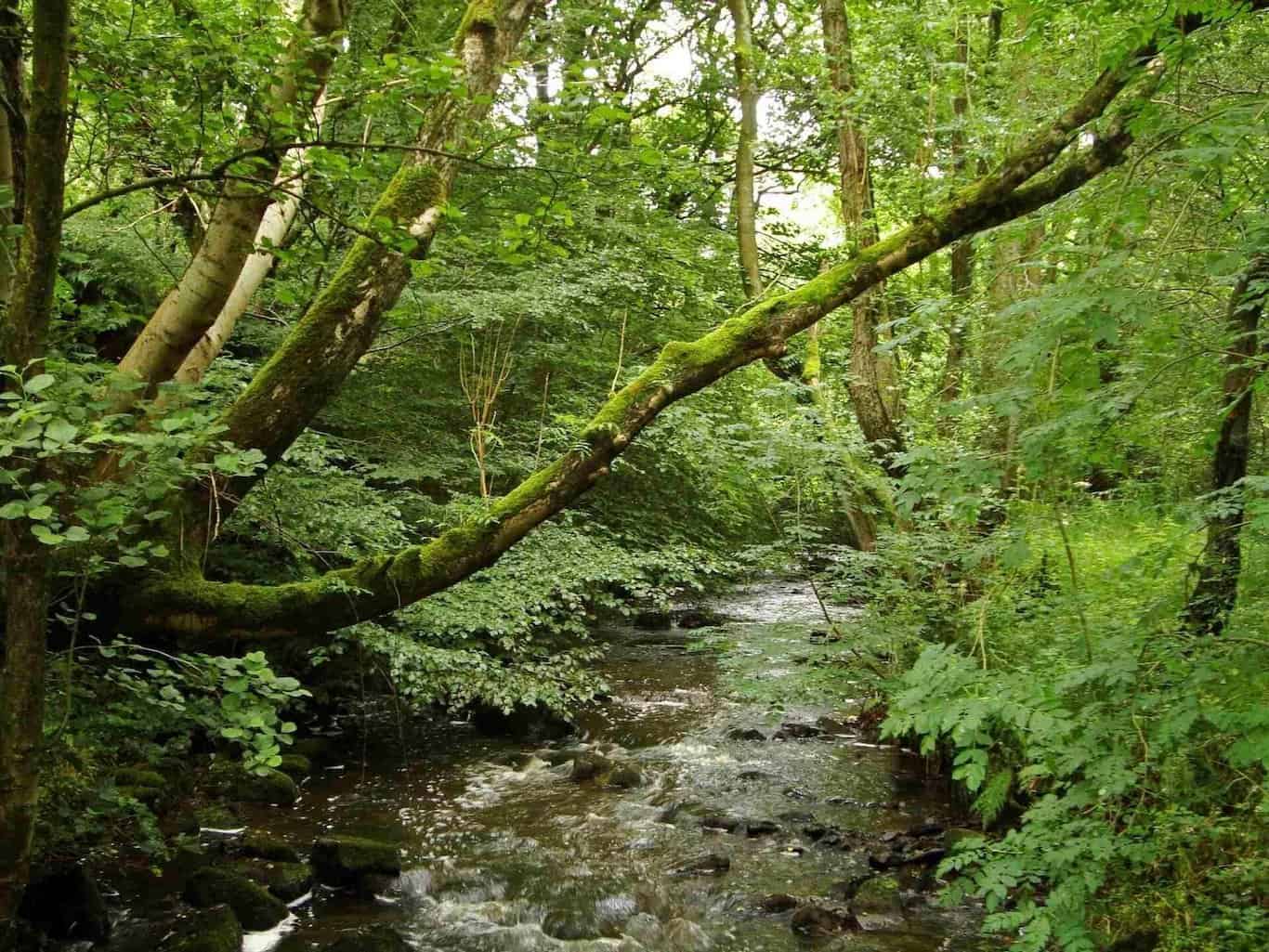
13. Arne, Wareham
This location is one of few in the UK where all 6 native reptiles can be found.
The spectacular landscape has heathland and oak woodland and is home to sand lizards, slow worms, and nightjars.
It’s best to come in the summer to spot these species as the reptiles sit out in the sun.
Autumn brings fungi to the woods, adding beautiful colour to the scene. This includes the colourful fly agaric.
Head down the 2-hour Hydes Heath Trail which will give you 360° views of the UK nature reserve.
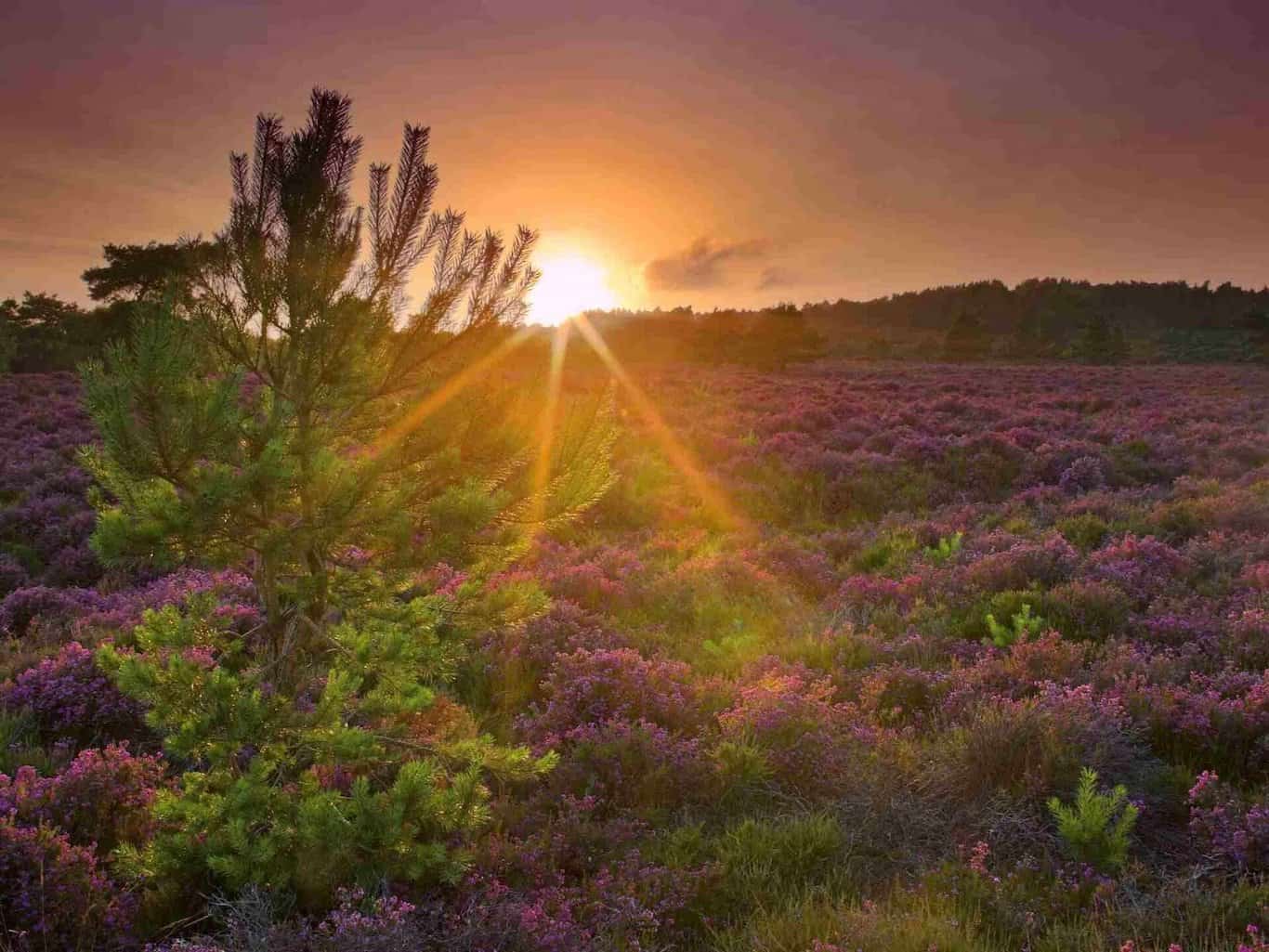
14. Bempton Cliffs, Bridlington
Along the Yorkshire coast, around half a million seabirds gather at Bempton Cliffs between March and October.
Gannets, guillemots, puffins, barn owls, tree sparrows and more can be found here, especially during spring.
On calmer spring days, porpoises can be seen, as well as roe deer early in the morning.
You can choose between the Cliff Top Trail which takes you 2 miles through the clifftop habitats or the Nature Trail which is a shorter walk through the scrub and grassland habitats.
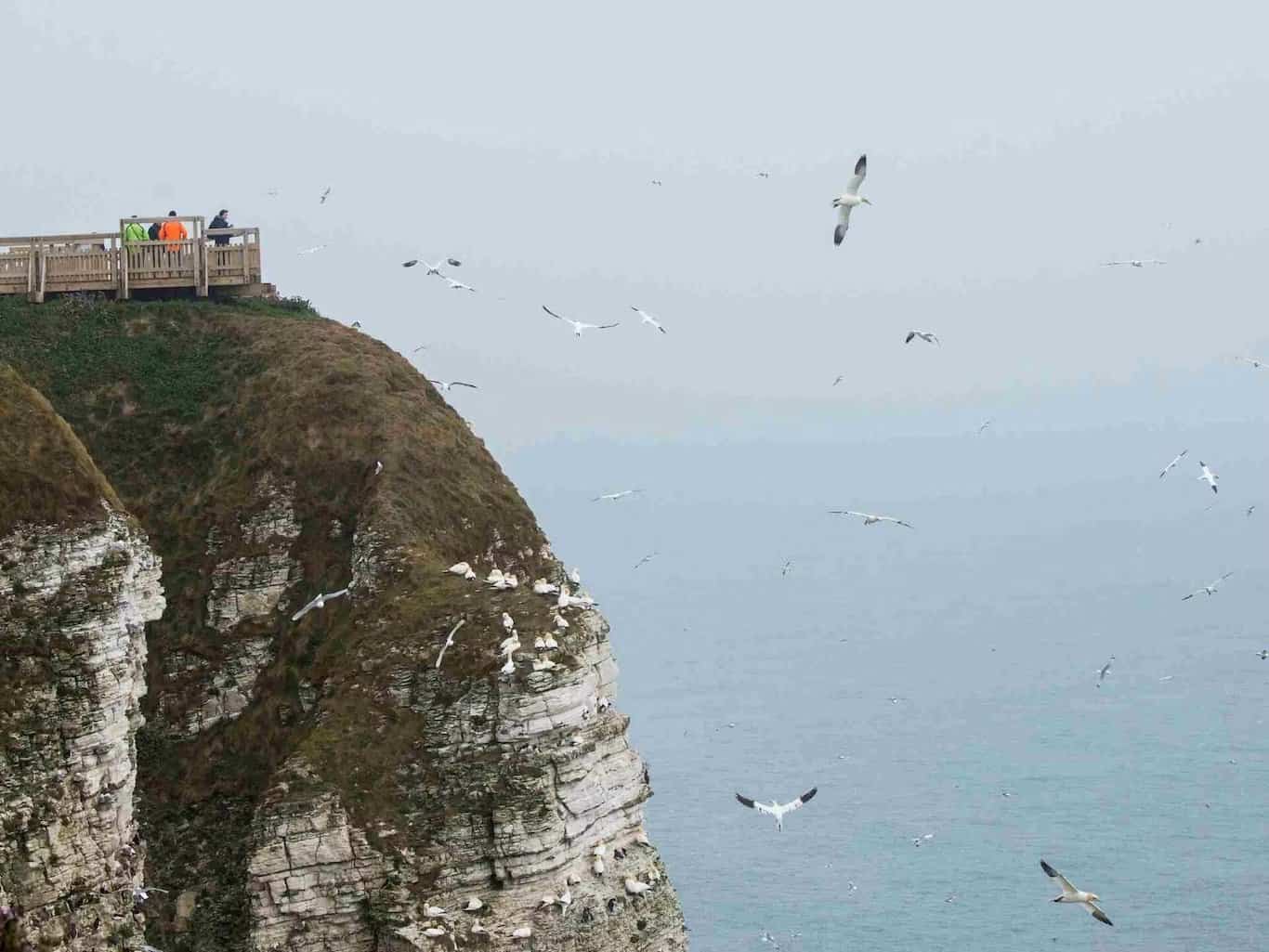
15. Upper Ray Meadows, Bicester
From wet meadow to species-rich grassland, this location is one the best in central England for scarce wading birds. This nature reserve is relatively close to London too.
Wading birds include lapwing and curlew, which were once common in England. The reserve offers a place for them to stay and breed.
Early spring is the best time to spot these birds, as the first curlew starts to return in late February.
Warmer months also bring wildflowers, including black knapweed, great burnet, tubular water dropwort, and meadowsweet.
You can explore a range of meadows at different times of the year.
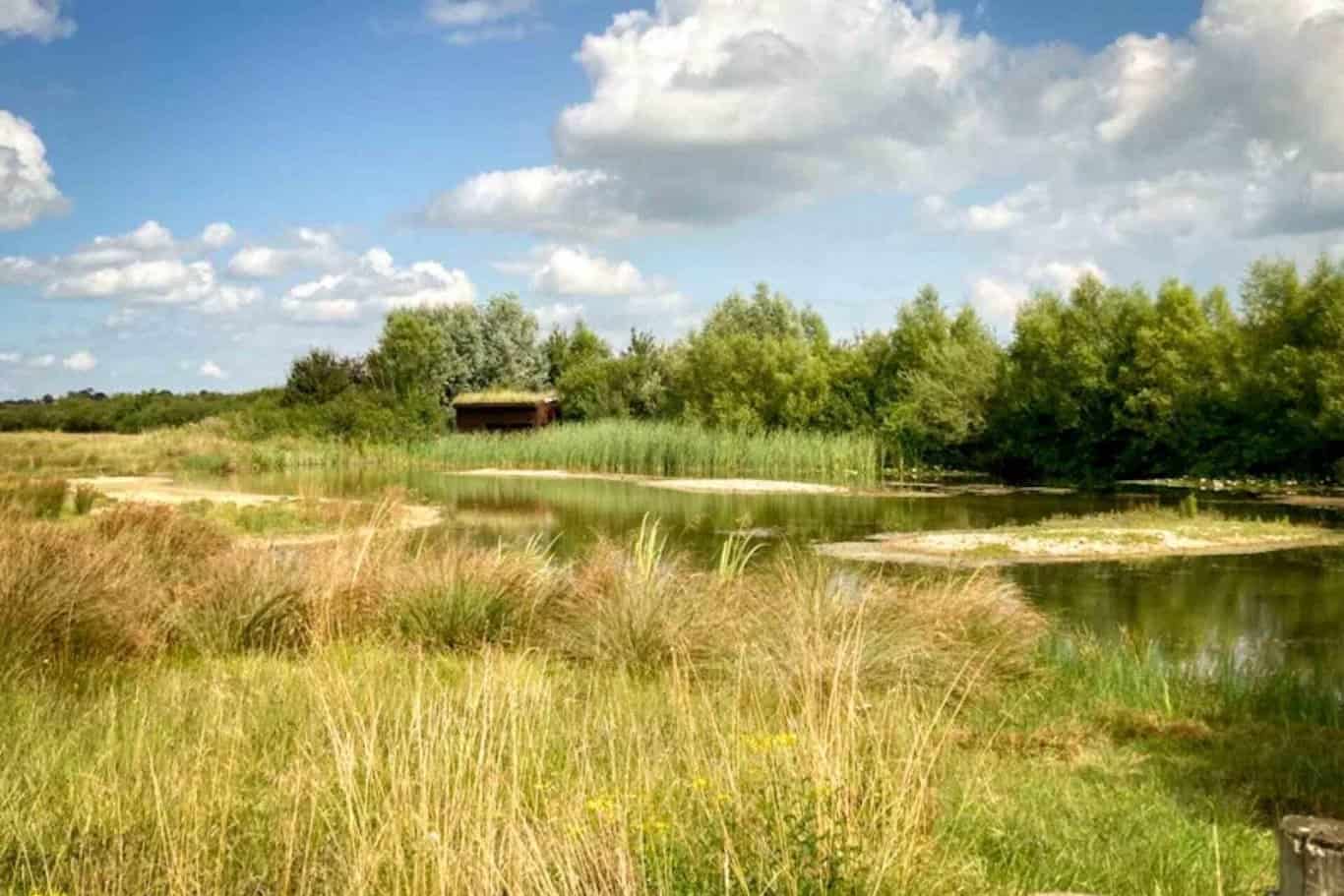
16. Sudbury Water Meadows, Sudbury
These meadows have never been ploughed or treated with chemical fertiliser.
The River Stour meanders through the land and wildflowers, insects, birds and mammals can be found here.
The river was used for 200 years to transport bricks to London but now sits peacefully.
Cattle graze the meadow and wander across the waters, offering a peaceful setting.
You can make your way down the Meadow Walk, a 5km trail that passes the water meadows to see the variety of wildlife, including water voles, painted lady butterflies, and deptford pink flowers.
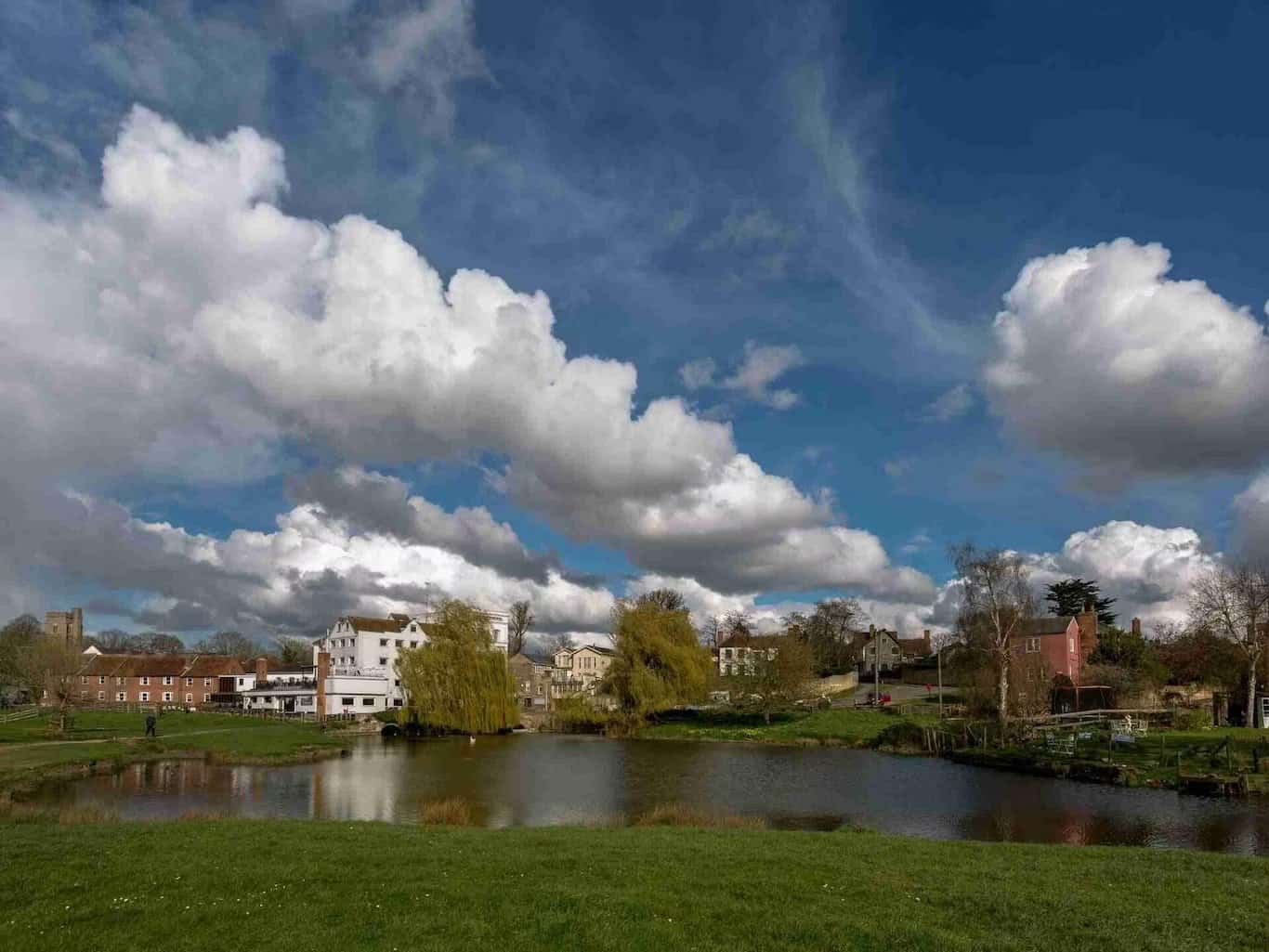
17. Insh Marshes, Kingussie
Covering 10 square km of River Spey floodplain, the Insh Marshes is one of the most important wetland landscapes in Europe and a vital nature reserve in the UK.
It supports breeding waders, including curlew, lapwing, redshank, and snipe.
The spring months are ideal for the breeding birds, and you’re likely to spot a wider variety of them during this time.
In Loch Insh and River Spey, breeding goldeneye and ospreys can also be seen.
The longest nature trail is 4.5km and there are a few hides to do some bird spotting.
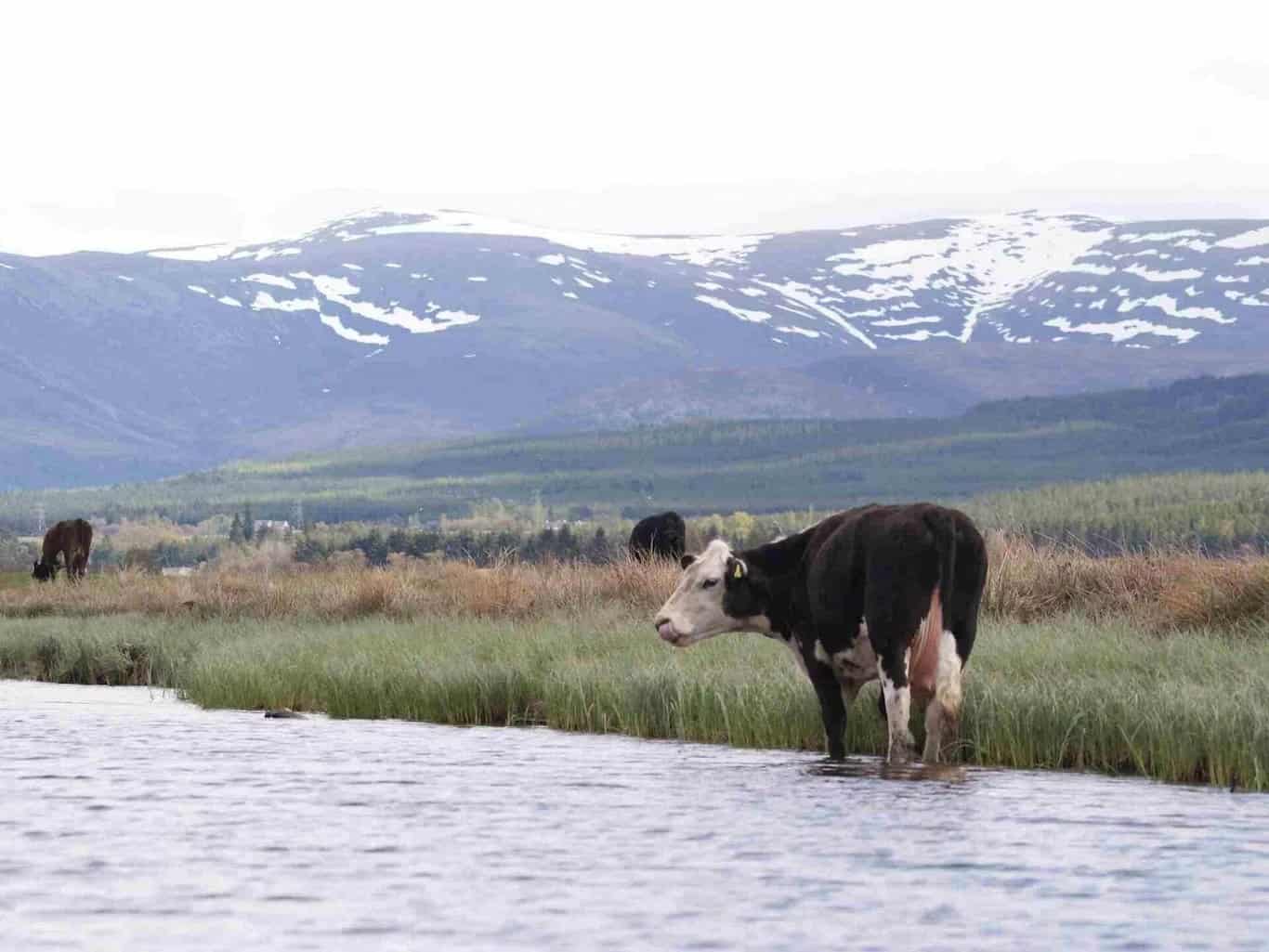
18. Rutland Water, Oakham
With 1,000 acres of wildland, Rutland Water is home to breeding ospreys.
The reserve has 200 bird species recorded, including the 25,000 ducks, geese, and swans that come in winter.
You may also see the nightingales among others in summer, if you go along to the Birdfair.
With over 30 bird-watching hides, 4 miles of walking trails, and 1,000 acres of wildlife land, this landscape is ideal for spotting different species.
The woodland is also filled with bluebells and birdsong, adding to the experience.
Discover who else you can spot this summer – What Birds And Wildlife To See Over The Summer In The UK
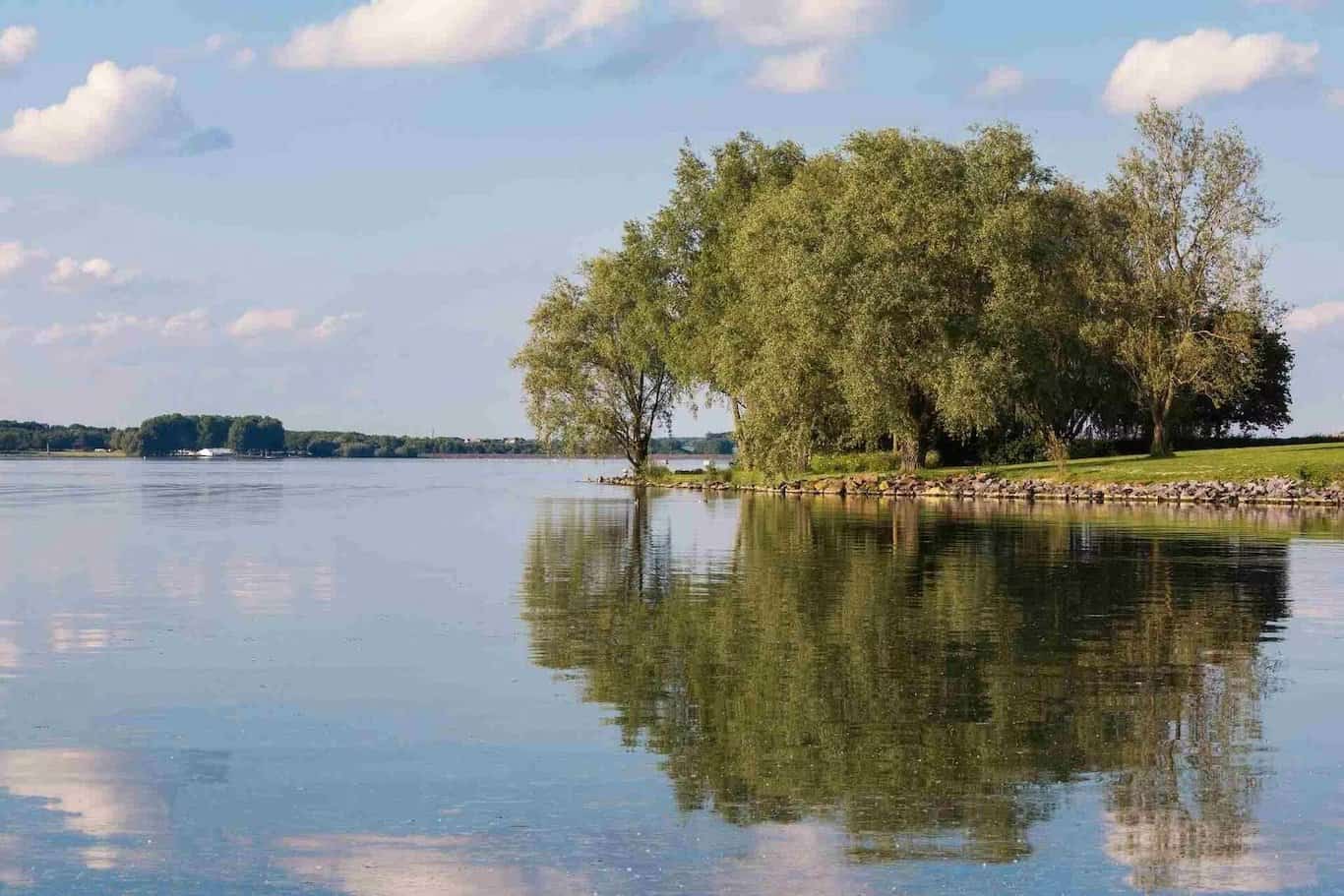
19. Old Moor, Barnsley
Enjoy the idyllic walks through the meadows full of orchids in the summer at Old Moor.
Wildflowers bloom as the dragonflies hunt over the wildlife pools. Lapwing chicks can also be seen during this time, and grebes carry their chicks on their backs.
But coming in autumn is the best time of year to see the kingfishers who are dotted across the land. You will also witness thousands of waders, including lapwing, golden plover, spotted redshank, and more.
You can grab guided walks through the various meadows, or wander down a nature trail to see which of the extensive range of birds and flora you come across.
- Discover more: Wild Britain: Not Just A Walk In The Woods
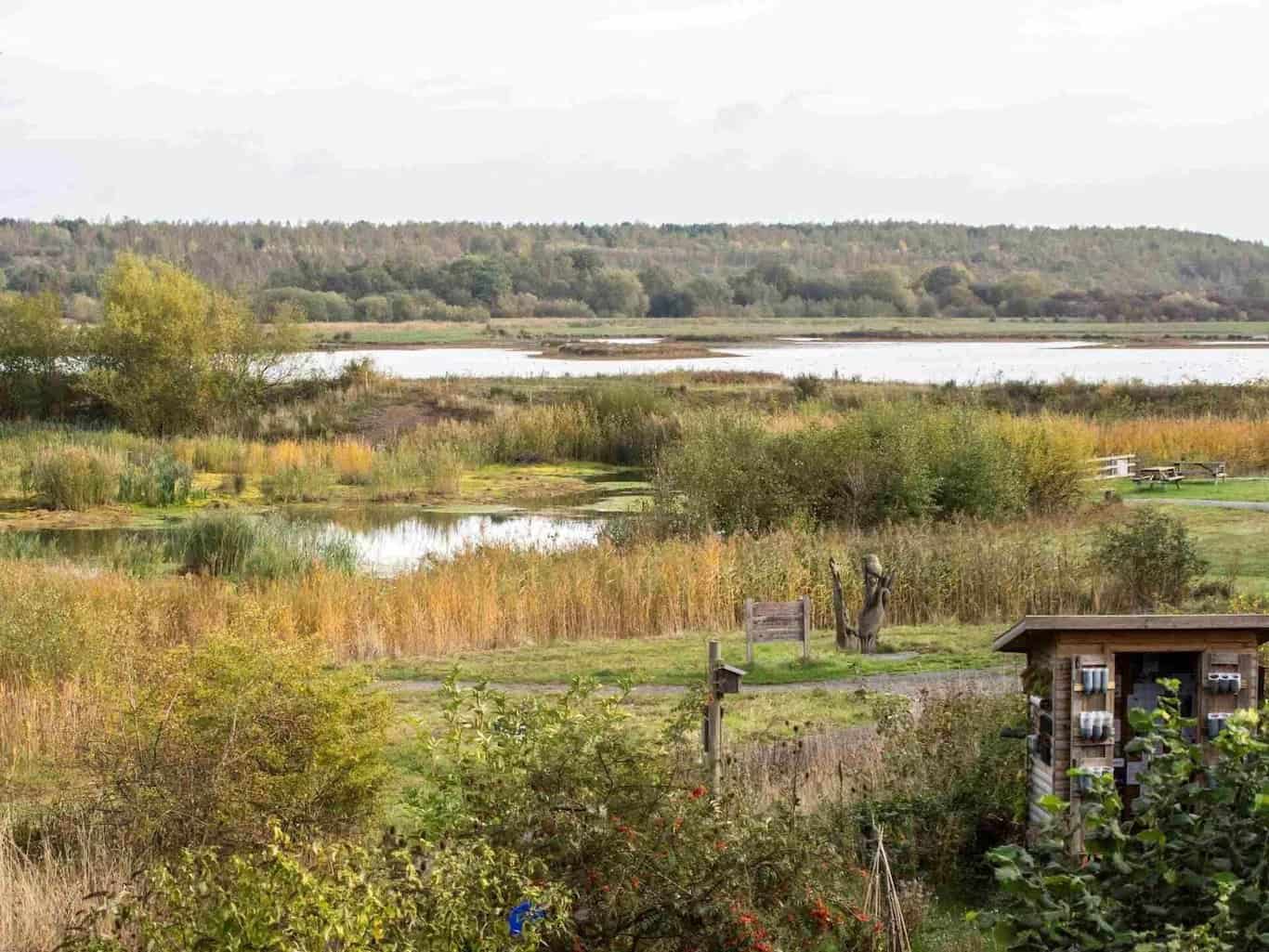
20. Skomer Island, Pembrokeshire Coast, Wales
Hop on a boat to go off the West Wales coast and lane on Skomer Island.
Grab the Skomer Guide to find a variety of guided walks around the island, all different lengths.
You’ll see spectacular wildlife on the island, but they are vulnerable. This includes dolphins, porpoises, grey seals, gannets, and even the Skomer vole.
It’s one of the best UK nature reserves for puffins too!
Take a closer look at you’ll see a sight of different coloured sea slugs and cetaceans.
The ideal time to come is in spring when the island is covered in bluebells so much so the whole island is transformed in colour.
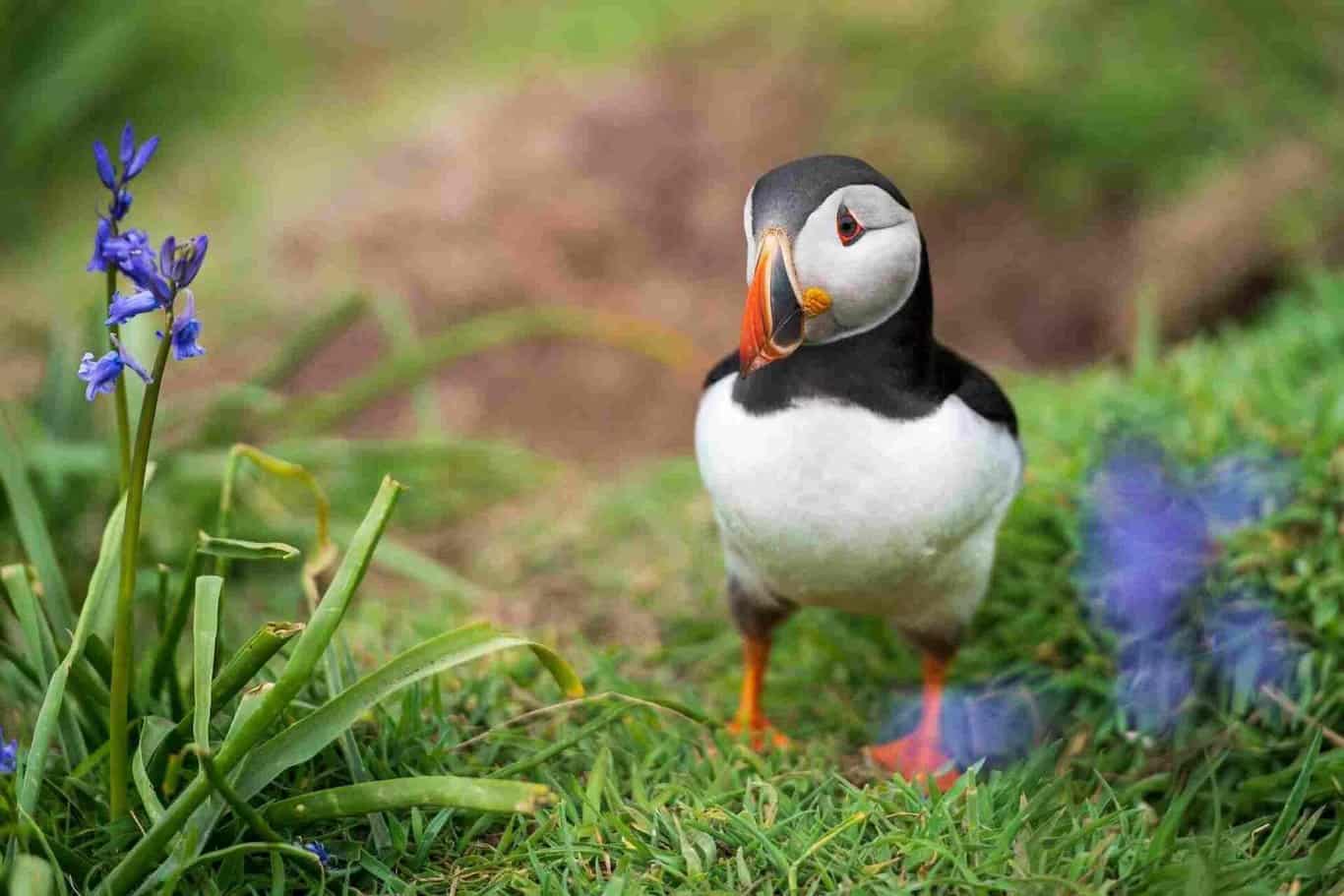
21. Merkinch Local Nature Reserve, Inverness
A hidden gem in the city of Inverness, the Merkinch reserve has tidal pools, marshes, reedbeds, and scrubland.
A wide range of wildlife enjoys this land, including roe deer, owls, weasels, herons, cormorants, and wading birds.
Take the circular walk of up to 2 miles and explore the smaller paths and boardwalks leading into the nature reserve.
You can even turn your visit into a walk along the canal and end up in the former fishing village of Clachnaharry.
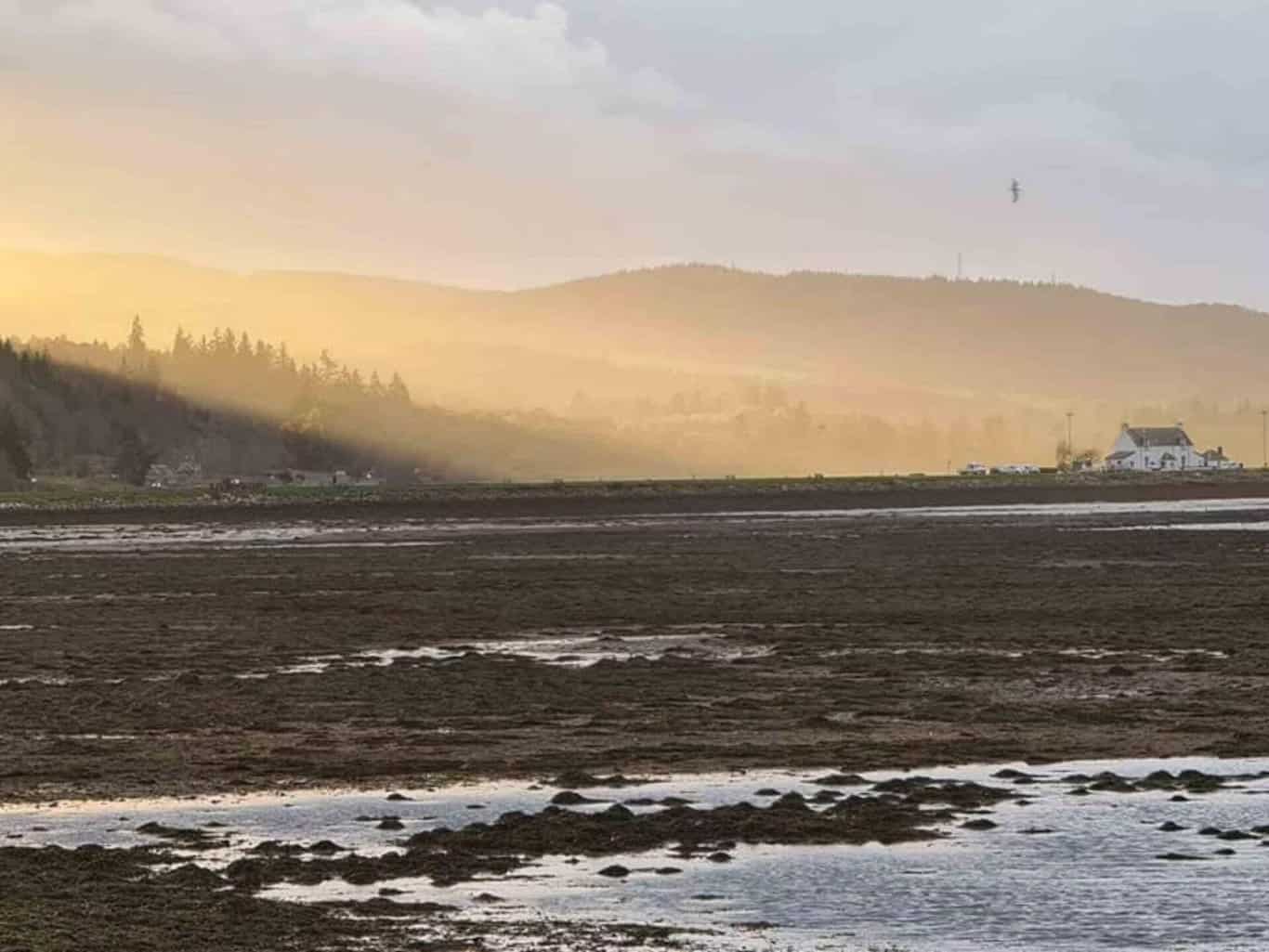
22. Somerset Wetlands National Nature Reserve, Somerset
Brand new nature reserve on the block, Somerset Wetlands has become England’s second ‘super’ national nature reserve in time for the 70th anniversary of the creation of national nature reserves.
The Somerset Wetlands National Nature Reserve absorbs six existing reserves on the Somerset Levels and Moors and includes an added 56% more land.
The reserve holds the second largest area of lowland peat which is a vital carbon store.
It’s also home to a number of rare plant and wildlife such as the skylark, bittern, avocet, hairy dragonfly and silver diving beetle.
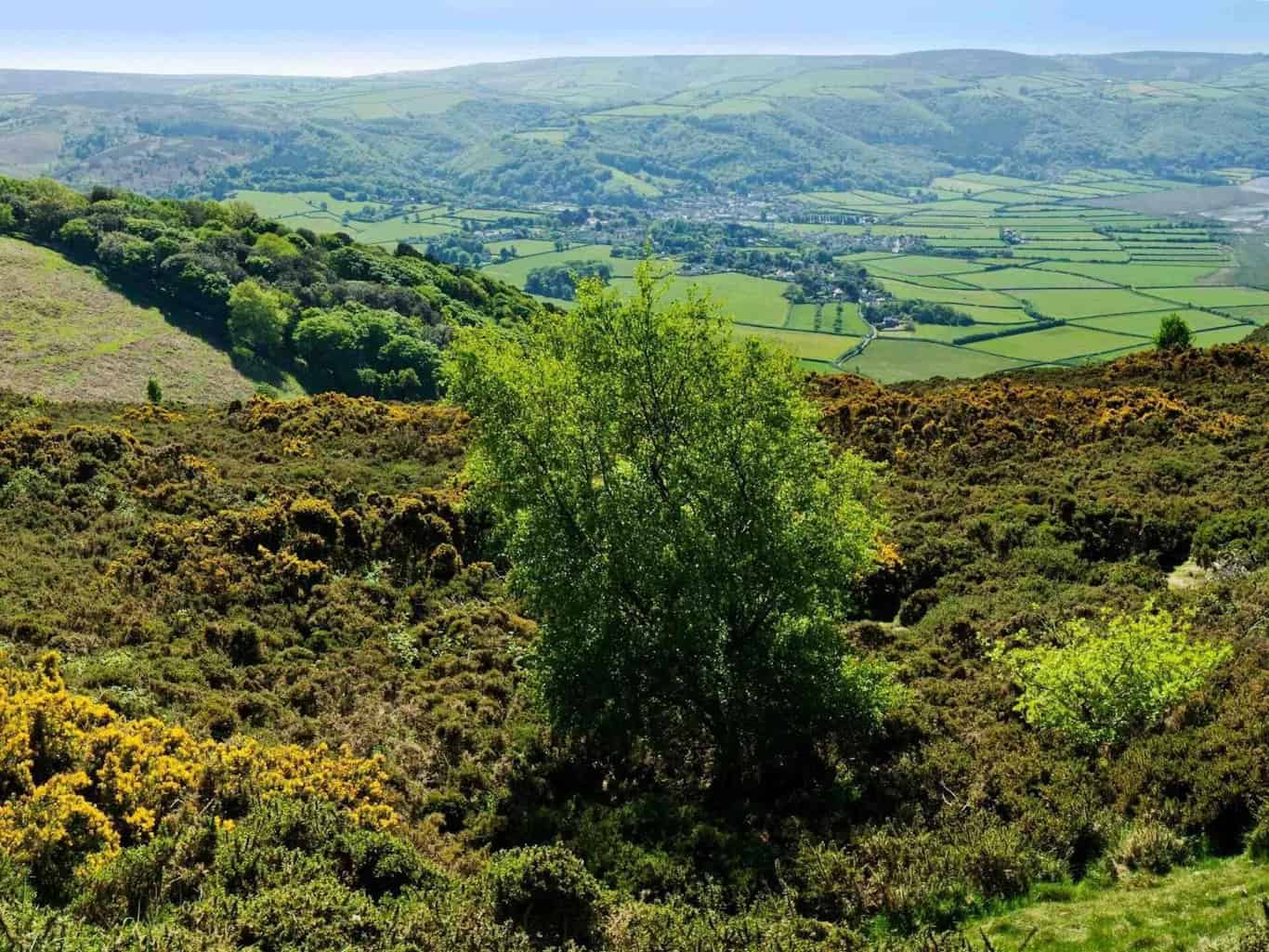
Loved this list of UK Nature Reserves and Want more?
- Learn more with the best documentaries on conservation or the books to read to discover the UK with
- Understand the complex issues around plastic pollution
- Discover how our peatlands and our seagrass meadows are the key to a Net Zero UK
- See what you can do to help conservationists with these great apps




